Disabled people share experience of accessible homes
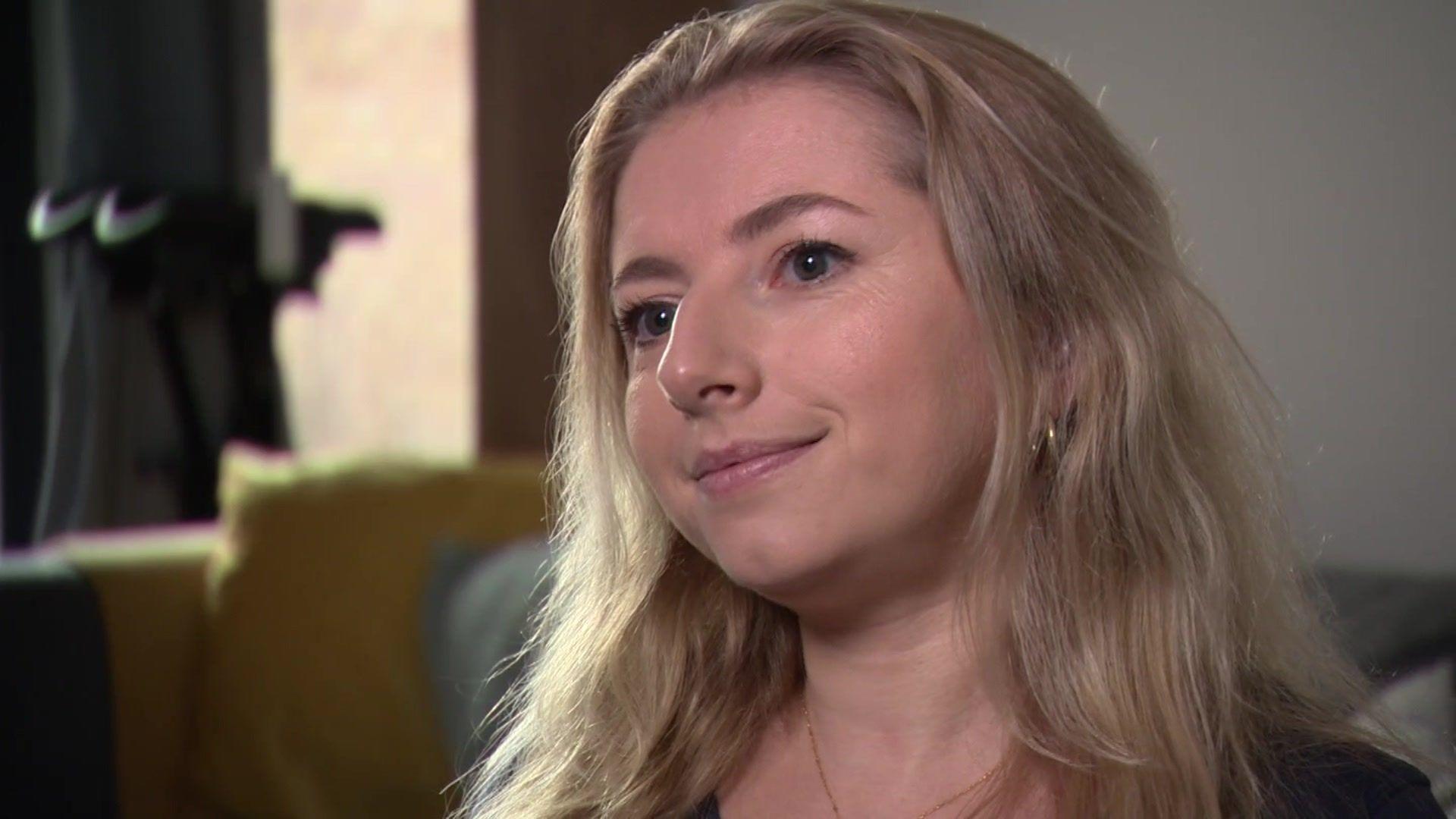
Abbi Brown said having adaptations in her home, from wide doorways to altering the position of switches and sockets, has made "a big difference to my day to day life"
- Published
Housing in London remains unaffordable, unsafe and inaccessible for deaf and disabled people, a study has found.
The survey was carried out by Inclusion London, which represents deaf and disabled organisations.
One respondent, Abbi Brown, who uses a wheelchair, said although her current flat was largely accessible, her garden was hard to get into due to an "enormous and very difficult step".
City Hall said the Mayor of London Sir Sadiq Khan had allocated £100m to deliver more accessible homes for disabled Londoners.
The report found one in four respondents with accessibility needs could not safely and easily use basic facilities like kitchens, bathrooms and entryways.
It also discovered that only 3% of current new-build housing in London was visitable for a disabled person with a mobility impairment.
Nearly two in three respondents said they had made cutbacks on food and other essentials to be able to afford housing.
Ms Brown said the adaptations in her home, which range from making the doorways "wide enough for me to get my wheelchair through" to putting sockets higher up and light switches lower down, "make a big difference to my day to day life".
But even then she said her home was still not fully accessible, like many adapted flats, because she struggled to get in and out of her garden due to an "enormous and very difficult step to get out into it".
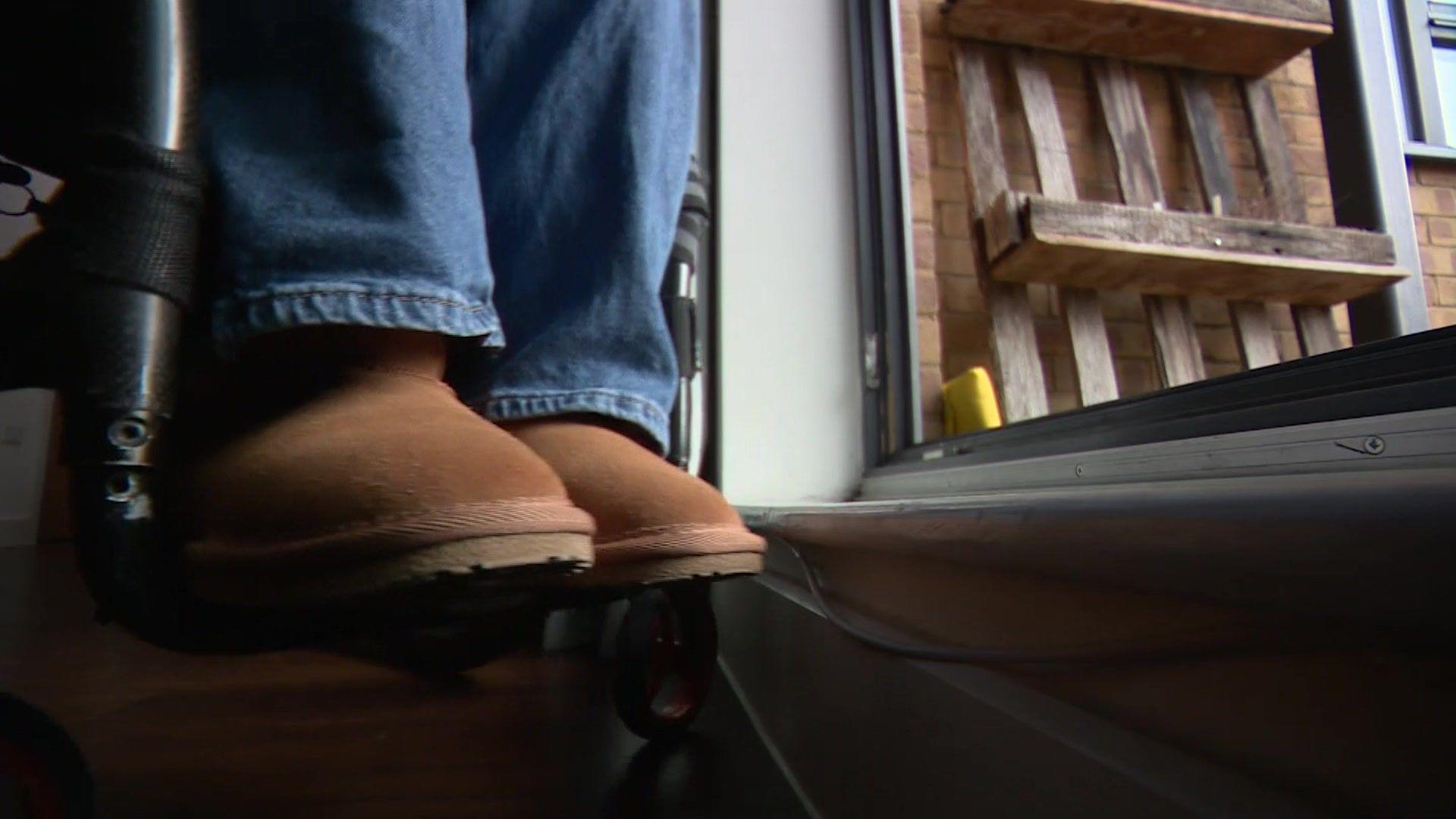
Ms Brown said the large step into her front garden made it very difficult for her to access
Ms Brown had to wait for a home like her current one to become available in the capital, meaning she previously had to live somewhere less suitable for her needs.
She said she was trapped in her previous Bethnal Green flat for days after one of the lifts broke down, and said she was "made to feel it (was) my fault".
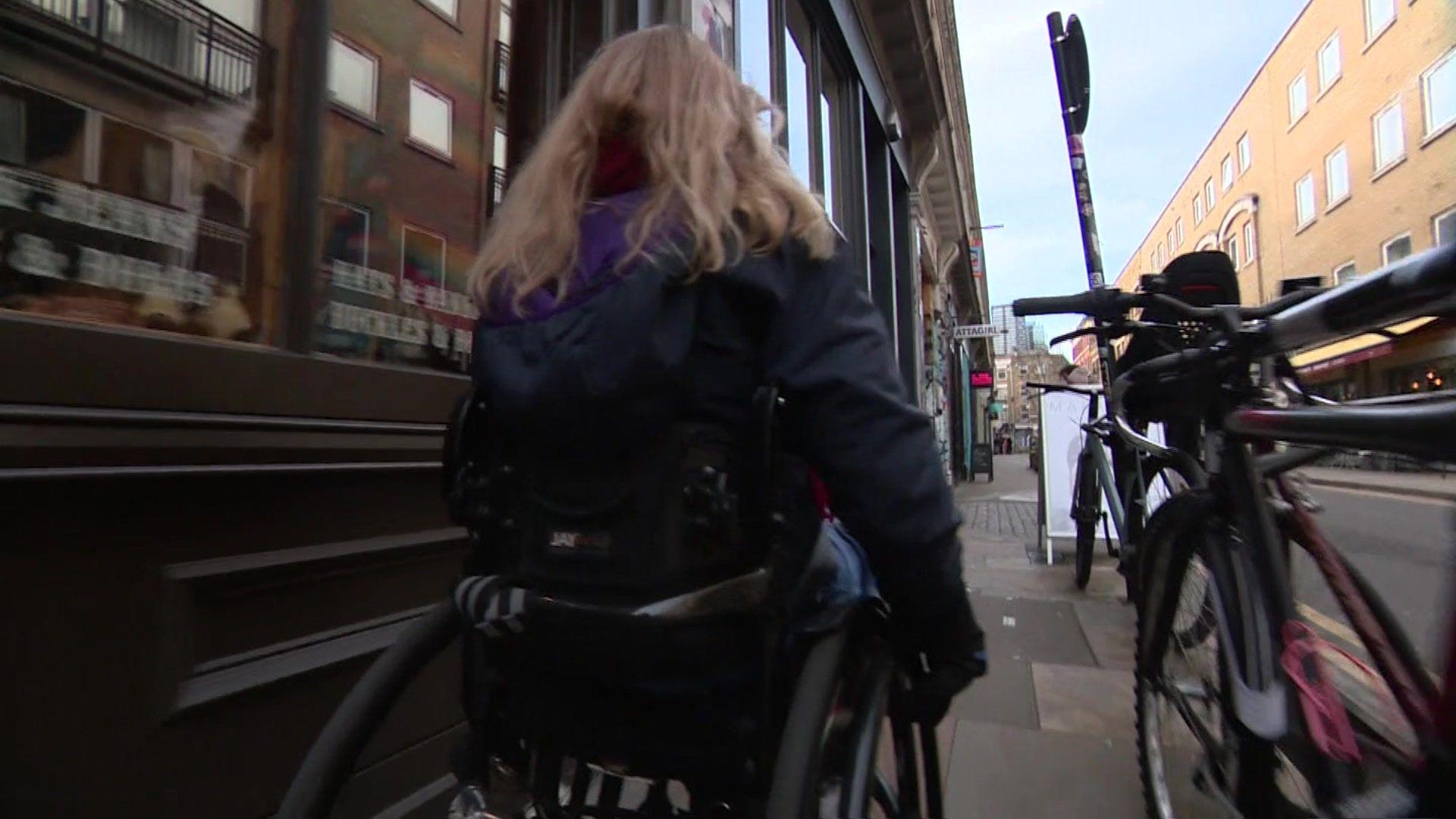
Ms Brown said she couldn't get into "90% of the shops and restaurants" in her local area
"Housing is not an isolated issue. Housing needs to be considered in the context of transport and streetscapes and public infrastructure," she explained.
"I can't get into, I would say, 90% of the shops and restaurants in this area.
"If you can't easily get down the street, you can't access the Tube station, then it doesn't really matter that your house is accessible because it is essentially a beautiful prison."
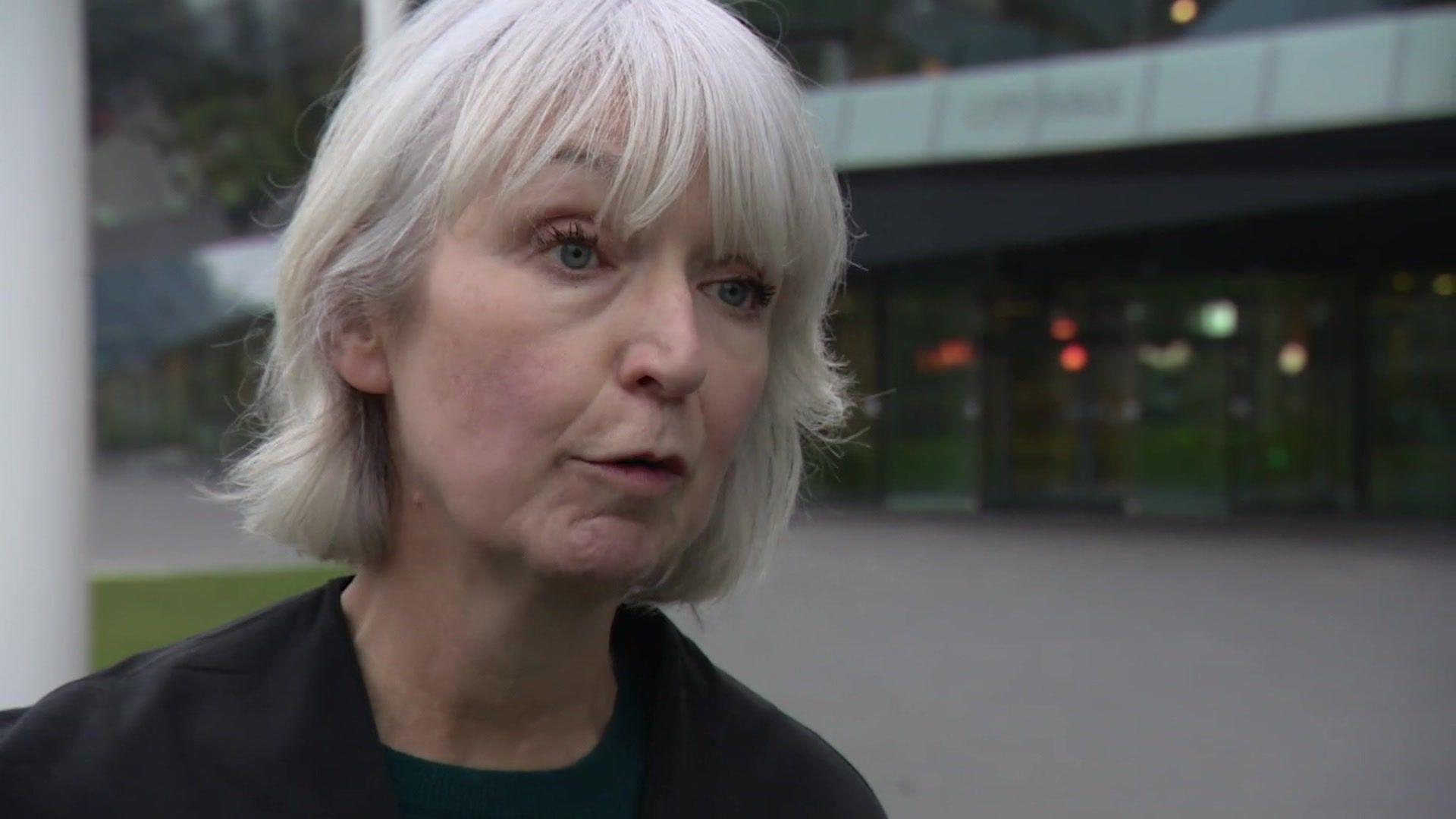
Inclusion London's Tracey Lazard said homes needed to be built which could be accessible throughout a person's life
Local and national decision makers are now being urged to work together to build more accessible homes, especially ones for social rent.
Tracey Lazard, chief executive officer at Inclusion London, said the low percentage of accessible new homes being built in the capital was "shocking" and was "condemning disabled people now to live lives of, frankly, misery".
She added: "We talk a lot about future proofing and resilience and critical to that has to be about building homes that people can live in throughout their entire lives."
A spokesperson for the Mayor of London said: "The mayor is committed to meeting London's diverse housing needs and has allocated more than £100m in funding to deliver well-designed, supported housing to enable disabled Londoners to live independently and access appropriate care.
"The mayor also requires a minimum percentage of accessible and adaptable units in all new housing developments funded by his Affordable Homes Programme, helping to build a fairer and better London for everyone."
Listen to the best of BBC Radio London on Sounds and follow BBC London on Facebook, external, X, external and Instagram, external. Send your story ideas to hello.bbclondon@bbc.co.uk, external
Similar stories
- Published27 June 2024
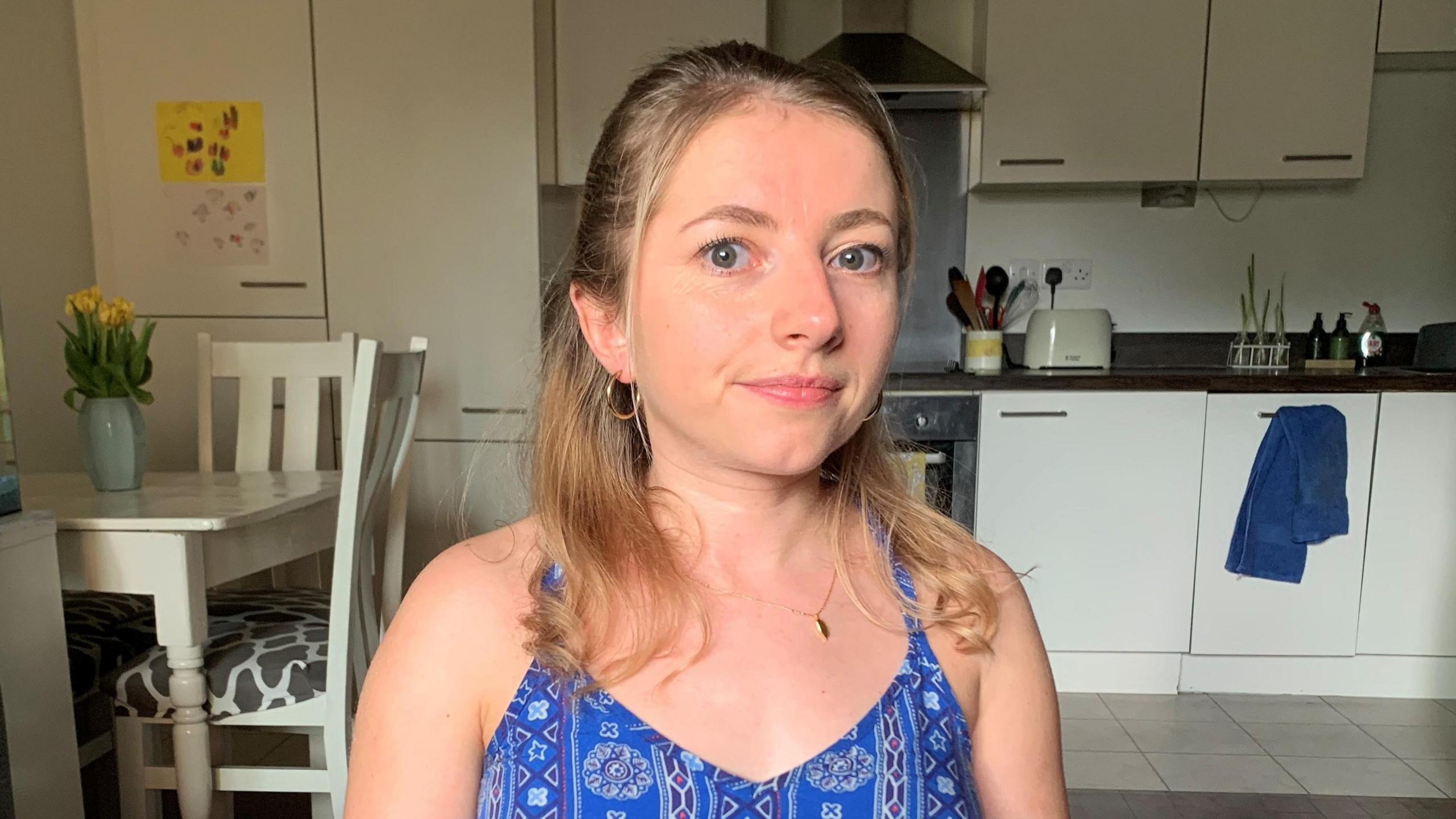
- Published9 August 2024
